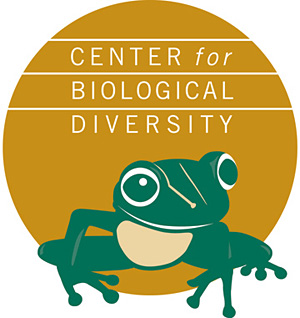
HONOLULU— Two dozen community organizations today urged Hawai‘i Gov. Josh Green to direct the Hawaiʻi Department of Agriculture to amend state rules and prevent the spread of destructive invasive species. These species include little fire ants, coconut rhinoceros beetles, hala scale and other pests that could wreak havoc on Hawaiʻi’s food security, environment, cultural practices, economy and quality of life.
The letter sent today is endorsed by the Center for Biological Diversity, Sierra Club of Hawai‘i, the Conservation Council for Hawai‘i, Kuaʻāina Ulu ʻAuamo, the Council for Native Hawaiian Advancement among other groups.
“Our islands are facing a biodiversity crisis and the Hawaiʻi Department of Agriculture’s foot-dragging in implementing these essential rules only worsens the threat,” said Maxx Phillips, Hawai‘i director and staff attorney at the Center for Biological Diversity. “The department must prioritize preserving our unique ecosystems and native species. It has to recognize that the cost of inaction is far too great for our environment and future generations.”
Despite having the authority, the state Department of Agriculture has never adopted rules to prevent the intra-island sale of plants, soil, compost and other plant and garden products infested with these pests. Such sales may confound community efforts to prevent establishment of these pests, such as the fight to stop the spread of little fire ant across Oʻahu. In one example, an Oʻahu business was recently found to be knowingly selling little fire ant-infested plants.
Proposed rule amendments to require infested commodities to be quarantined and treated before they are moved or sold were approved for a public hearing in February, after their review by the Advisory Committee on Plants and Animals, the Board of Agriculture and the Small Business Regulatory Review Board. Eight months later, a public hearing still hasn’t been held and rules appear no closer to being enacted.
Today’s letter asks Green to end the delay and ensure a public hearing takes place and rule amendments are passed.
“This is not just an environmental issue, or an agriculture or native species one,” said Jonee Peters, executive director of the Conservation Council for Hawaiʻi. “Doctors, teachers, cultural practitioners, businesses — they all understand how much of an impact invasive pests like the little fire ant and coconut rhinoceros can have on nearly every aspect of life in our islands.”
The state Department of Agriculture submitted a proposal for the Nov. 17 Advisory Committee on Plants and Animals meeting to abandon those much-needed rules. Instead, it plans to restart the rulemaking process with a new proposed rule that lacks any mention of the little fire ant, or any provision to prevent the spread of invasive pests through on-island sales. The rulemaking process can take months or even years.
The committee will decide whether to recommend that the new, watered-down rule proposal be moved in lieu of the much stronger protections it had previously reviewed and approved at the beginning of the year.
“The Department of Agriculture needs to pull its head out of the ground, recognize the profound harms that have already been inflicted on farms, families, and ecosystems on Hawai‘i Island, and do its job,” said Wayne Tanaka, director of the Sierra Club of Hawai‘i. “The Plants and Animals Advisory Committee needs to demand that the department pass the full set of rules it reviewed in February — not this half-baked proposal that will frustrate community efforts protect our islands from more invasives.”
Sen. Jarrett Keohokālole expressed his concern about undue industry influences on the department’s decision-making.
“Director Sharon Hurd stated, in writing, that they were not hearing these rules because of objections made by the nursery industry. Such complete deference to private business interests at the expense of our food security, our culture, and our community is deeply frustrating,” said Keohokālole.
The coalition called on the public to pressure the state Department of Agriculture to prioritize the protection of Hawaiʻi’s fragile ecosystems.
“It’s going to take all of us to have a chance to stop this thing from spreading across Oʻahu, and across the other islands,” said Joe Wat, KEY Project Community Development Coordinator, who has been going door-to-door to detect and eradicate the little fire ant in Kahalu‘u. “It’s all-hands-on-deck time, and that includes the governor and his Department of Agriculture.”
